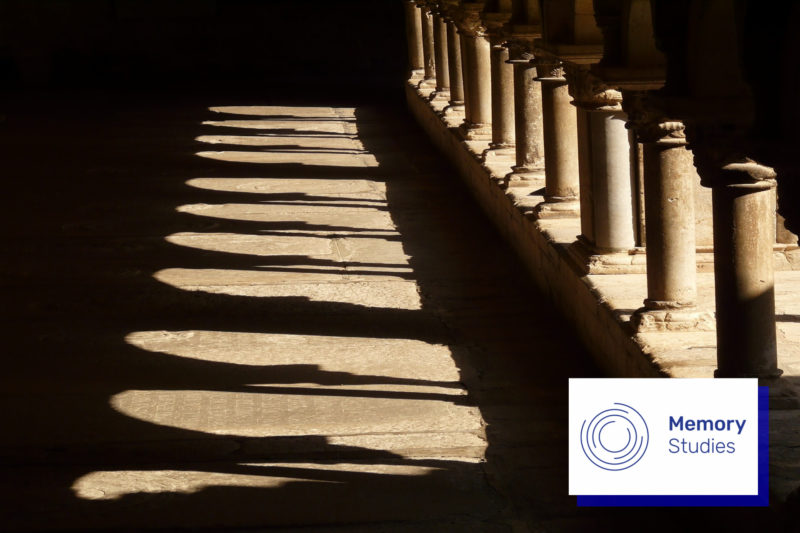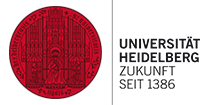-
Interdisciplinary Online Ph.D. Seminar “The Past in the Present: the Dynamics of Remembrance” University of Warsaw 15-17 April 2021
-
-

- 15-04-2021
-

- 09:00
-
-
“The Past in the Present: the Dynamics of Remembrance”
University of Warsaw
15-17 April 2021
Please, join us on Zoom:
Thursday, 15th of April 2021, access: https://us02web.zoom.us/j/ 84616941243?pwd=clVWSDFqMk8rNU9PZHFxTVdmTGN0QT09 Meeting ID: 846 1694 1243
Passcode: 0sh3rUFriday, 16th of April 2021, access:https://us02web.zoom.us/j/81029000323? pwd=U0dDQjVlL0pzeWd2ajlkVjVxT3BnQT09
Meeting ID: 810 2900 0323
Passcode: y1s1sk
The interdisciplinary Ph.D. Seminar “The Past in the Present: the Dynamics of Remembrance” is organized by the Centre for French Culture and Francophone Studies at the University of Warsaw (CFC) as a part of the Plurality of Memories in Europe in a Global Perspective project, a trailblazing initiative for European memory studies. Composed by a Ph.D. conference and a workshop, is completing a research based educational project supported by the EU; within the 4EU+ alliance.
In recent years, memory studies have become an essential and dynamically developing, interdisciplinary area in the Humanities and Social Sciences. By adopting an interdisciplinary approach in research and education, the Plurality of Memories in Europe in a Global Perspective project is focusing on the multicultural plurality of memories in Europe in general, with emphasis on mass violence, politics of memory, and memory wars in Central, East and Southeast Europe in particular. In this respect, we will be exploring multiple dimensions of local memories and put them in a dialog with national and transnational actions within and beyond Europe. The main goal is to work towards more inclusive public history and collective memory and to build a research and teaching network for interdisciplinary, institutionalized memory.
PROGRAM
Thursday, 15th of April 2021
09:00-09.30 Introduction and Welcome
Georges Diener, Counsellor for Cooperation and Cultural Affairs of the French Embassy in Poland
Nicolas Maslowski, Head of the Plurality of Memories Project, CFC
Aleksandra Wiktorowska, conference organizer, CFC
PART 1 Politics and Identity
09:30-11:00 Session 1: National Cultural Heritage in Politics
Moderator and discussant: Joanna Wawrzyniak Second discussant: Jiří Kocián
1. Tóra Djurhuus, «The “Imperial Dimension” of the Brexit debate», University of Copenhagen
2. David Barkhausen, “Weimar’s Trauma or Frankfurt’s Triumph? Tracing Stability Culture’s Historical Roots in the German Bundestag”, Heidelberg University
3. Maja Głowacka, «The “Wiadomości Ziemiańskie” Magazine as a Platform for Negotiating Memory and Identity of Contemporary Polish Gentry Communities», University of Warsaw
11:00-11:20 Coffee break
11:20-12:20 Session 2: Memory and Political Identities
Moderator and discussant: Robert Małecki Second discussant: Nicolas Maslowski
1. Anastasia Kochetova, “The Place and Role of Conservatism at the Beginning of the 20th century: The Policy of Right-Wing Parties in Russia and Germany During the Revolutionary Era”, Charles University
2. Kateřina Fuksová, “Memory Activism in the Republic of Moldova: Last Address and Stolpersteine Projects”, Charles University
12:20-13:20 Session 3: Traces of the Religious Past
Moderator and discussant: Daniel Baric Second discussant: František Šístek
1. Giovanni Agostoni, «Introductory Remarks on “Abandoned” Places of Worship in Bosnia and Herzegovina: Memory, Cultural Value and Territorial Identification Processes», University of Milan
2. Ediz Hazir, «Resilience and Religious Belonging of Multicultural and Multinational Encounters in the “Infidel Izmir”», Charles University
13:20-14:20 Lunch Break
14:20-15:20 Session 4: Painful Memory of the War
Moderator and discussant: Tanja Penter Second discussant: Paweł Dobrosielski
1. Emina Zoletic, “Literature Review on Intergenerational Transmission of War Memories Among Families”, University of Warsaw
2. Anežka Brožová, “Memories of the aftermath of WWII in the Hlučín Region”, Charles University
15:20-16:20 Session 5: Museumification and its Logic
Moderator and discussant: Andrea Pinotti Second discussant: Łukasz Bukowiecki
1. Gabriela Manista, “Increasing the Entertainment Function in Cultural Institutions by Developing AI”, University of Warsaw
2. Rose Smith, “How the Platform Perpetuates a Hegemonic European memory of Communism in its Members Museum”, Charles University
16:20-16:40 Coffee break
PART 2 Art
16:40-18:10 Session 6: Engaged Aesthetics. Fine Art and Memory
Moderator and discussant: Elisabetta Modena Second discussant: Cathrine Bublatzky
1. Tijana Mišković, “Traveling Memory in the Work of Artists from the Former Yugoslavia Now Residing in Denmark”, University of Copenhagen
2. Margherita Fontana, “From Primitivism to Contemporary Mythology: Some strategies by American Feminist Art to Remember and Reinvent the Past”, University of Milan
3. Zofia Rochozińska, “Social Realism from 1951 to 2020: Processes of Remembering and Forgetting in Central and Eastern Europe”, University of Warsaw
Friday, 16th of April, 2021
09:00-10:30 Session 7: Nostalgie and History in Writing
Moderator and discussant: Luba Jurgenson Second discussant: Paweł Rodak
1. Jūratė Petronienė, “Reminiscences by Sophie Tyzenhaus de Choiseul-Gouffier: Memoirs as a Place of Cultural Memory”, Vilnius University
2. Lana Kupiec, “Nostalgia in Sionist Writer’s Work: Vladimir Jabotinsky’s The Five and Julius Margolin’s Eight Chapter on Childhood, Two Literary Journeys Back in Time and Space”, Sorbonne University
3. Mariana Prouzová, “The Process of Remembering and Mourning in W. G. Sebald’s last novel Austerlitz”, Charles University
10:30-11:40 Session 8: Individual and Collective Memory in Writing
Moderator and discussant: Jessica Ortner Second discussant: Aleksandra Wiktorowska
1. Sara Quondamatteo, “Between the Self and the Community: Individual and Collective Memory in Czesław Miłosz’s Native Realm”, Sorbonne University
2. Maria Turgieva, “Individual and Collective Memory in Gaito Gazdanov’s novels, short stories and documentary prose”, Sorbonne University
3. Short presentation (of approx. 5 minutes) Astrid Greve Kristensen, “Strangers in a Strange Land: The Returns of Orphans in German and Czech Literature of the 2000’s. A Comparative Study of the Works of Jáchym Topol, Radka Denemarková and W. G. Sebald”, Sorbonne University (10 minutes)
11:40-12:00 Coffee break
12:00-13:30 Session 9: Poetry, Performance, and Remembrance
Moderator and discussant: Élisabeth Angel Perez Second discussant: Dorota Sosnowska
1. Alice Clabaut, “To Archive the Present or Beckett’s First Production Ever in the GDR”, Sorbonne and Charles Universities
2. Maria Carbune, “Invented Traditions and the Transmission of Cultural Memory: the Imperial Poetry Competition Utakai Hajime”, University of Heidelberg
3. Katarzyna Czech, “How Do Polish Poets Remember? Collective Memory and Identity in Contemporary Polish Engaged Poetry”, University of Warsaw
13:30-14:30 Lunch Break
PART 3 Space and Communication
14:30-16:00 Session 10: Urban Space
Moderator and discussant: Delphine Bechtel Second discussant: Tea Sindbæk Andersen
1. Eugenia Sarapina, “Kyiv Collective Memory through the Centuries: Dynamics of City’s Imaginary”, Sorbonne University
2. Jonas Lendl, “Reconstruct or Deconstruct? Handling the Architectural Heritage of National Socialism in Nuremberg”, Heidelberg University
3. Ziyu Yuan, “Still the Opium? Shopfronts in London’s Chinatown”, University of Copenhagen
16:00-16:20 Coffee break
16:20-17:50 Session 11: Memory Carriers and Functions through Ages
Moderator and discussant: Thomas Schmitt Second discussant: Giancarlo Grossi
1. Kristina Sieckmeyer, “Ancient Reflections on Communication at the Dawn of Writing”, Heidelberg University
2. Fiorenza Manzo, «Memory as a “Function” and the Function of Memory in Leibniz’s Philosophy», University of Milan
3. Jakub Šindelář, “Beyond National Commemoration of WWI in the Video Game Valiant Hearts”, Charles University
17:50-18:10 General conclusions (scientific committee and moderators of all sessions)
Saturday, 17th of April, 2021
(ONLY FOR ENROLLED SEMINAR’S PARTICIPANTS)
10:00-12:00 PhD Workshop Virtual Memory on the Rosetta Mission
Organized by the University of Milan
Moderators: Andrea Pinotti, Elisabetta Modena, Giancarlo Grossi
12:00-12:30 Workshop’s final remarks
Scientific committee
prof. Kateřina Králová (Charles University)
dr Jiří Kocián (Charles University)
prof. Tanja Penter (Heidelberg University)
prof. Christiane Brosius (Heidelberg University)
prof. Thomas Schmitt (Heidelberg University)
prof. Élisabeth Angel-Perez (Sorbonne University)
prof. Luba Jurgenson (Sorbone University)
prof. Lene Sofie Bak (University of Copenhagen)
dr Jessica Ortner (University of Copenhagen)
dr Tea Sindbæk Andersen (University of Copenhagen)
prof. Andrea Pinotti (University of Milan)
dr Giancarlo Grossi (University of Milan)
dr Elisabetta Modena (University of Milan)
prof. Joanna Wawrzyniak (University of Warsaw)
dr Paweł Dobrosielski (University of Warsaw)
dr Nicolas Maslowski (University of Warsaw, Head of European Pluralities Program, Head of the Plurality of Memories Project)Conference Organization: dr Aleksandra Wiktorowska (University of Warsaw: CFC)
Contact: phdseminar.thepastinthepresent@gmail.com
-
-












